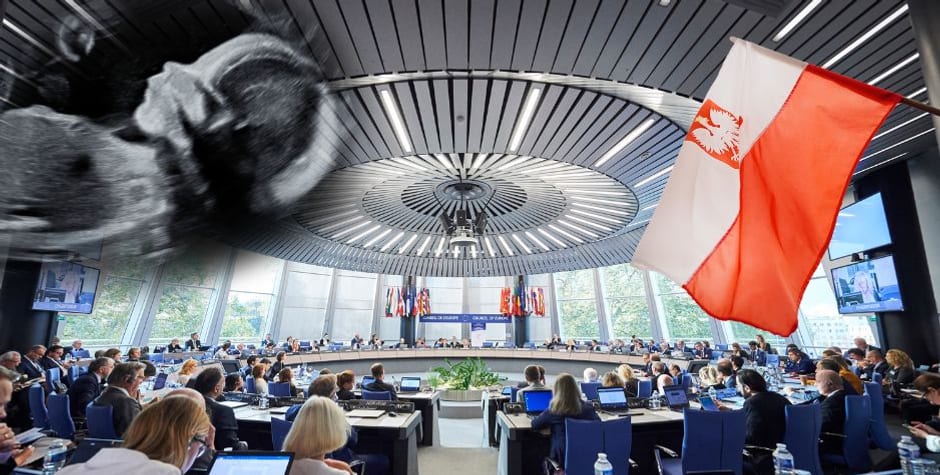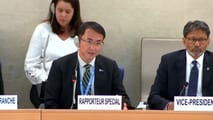The European Court of Human Rights (ECHR) has already condemned Poland on three occasions: the Tysiąc (2007), R.R. (2011), and P. and S. (2012) judgments; because Poland’s access to abortion was deemed ineffective. This condemnation supposedly aimed not to require Poland to liberalize abortion further but to allow timely and unimpeded access to currently legalized abortions.
As with all ECHR judgments, Poland must comply with these three rulings. The Committee of Ministers of the Council of Europe monitors compliance. But, astonishingly, the monitoring procedure is still open between eleven and sixteen years after these judgments. This procedure is abusive for two reasons: first, Poland has primarily fulfilled its obligations, and second, the Committee of Ministers' recent requests exceed its mandate.
Under Rule 9 § 2 of the Committee of Ministers, any non-governmental organization can submit a communication in this type of procedure. The ECLJ submitted a communication in May 2023, one month before the Committee’s next meeting on them (June 5-7th, 2023). This communication focused on the three cases mentioned above. In its communication, the ECLJ countered the pro-abortion lobbying carried out by three organizations at the Council of Europe: the Center for Reproductive Rights, the Federation for Women and Family Planning, and the Helsinki Foundation for Human Rights. The ECLJ had previously intervened in this same procedure in July 2021.
Written observations submitted by the ECLJ
The ECLJ reminded the Committee of Ministers that Poland has already responded to its requests. It has put in place adequate procedural safeguards which enable a pregnant woman to have her arguments heard in the event of disagreement with the medical team, this includes whether she met the legal conditions for an abortion. These safeguards also guaranteed access to reliable information for women wishing to have an abortion.Therefore, the supervisory procedure in the Tysiąc, R.R. and P. and S. judgments should have already been closed.
In its observations, the ECLJ denounced the two excessive demands of the Committee of Ministers, which were present in its resolutions since March 2021 (See Resolution CM/ResDH(2021)44). The Committee has, in fact, greatly extended its field of supervision, unrelated to the three judgments whose execution it supervises:
- The Committee thinks Poland should reduce the right to conscientious objection and remedy the low recourse of abortion in certain regions. In response, the ECLJ defended the right to freedom of conscience and demonstrated that no causal link connects the practice of conscientious objection and the low number of abortions in Poland. This low recourse to abortion in Poland is also good news.
- The Committee asked Poland to justify the ruling of the Constitutional Court on October 22, 2020, recognizing that eugenic abortion is contrary to human dignity. Before they were banned, eugenic abortions mainly targeted children with Down's syndrome. The ECLJ recalled that Poland is free to decide its legislative position on abortion in accordance with its Constitution and the margin of appreciation recognized in this field by the Council of Europe.
Poland is not obligated to respond to these two requests from the Committee of Ministers, which encroach upon its sovereignty. Instead, Poland should be commended for its commitment to preserving the lives of unborn children, including those with disabilities.
The influence of the European Implementation Network (EIN)
The ECLJ hopes that the Committee of Ministers will rapidly conclude its monitoring of the execution of these three judgments. The Committee must resist the pro-abortion lobbying, which is using this monitoring to challenge all Polish legislation and case law on abortion.
However, rather than resist, the Committee of Ministers cooperates closely with the European Implementation Network (EIN), co-founded by the Helsinki Foundation for Human Rights and the Open Society Justice Initiative. The EIN is a network whose aim is to encourage massive intervention by progressive Non-Government Organizations (NGOs) in the procedure for executing ECHR judgments. In partnership with the Committee of Ministers and the ECHR, the network organizes training courses for NGOs wishing to intervene in the procedure (see this course, for example). But the ECLJ is not invited to such training courses.
As an NGO involved in the execution of judgments, the ECLJ requested such training this month and is ready to cooperate with the ECHR and the Committee of Ministers, as the EIN does. The ECLJ faces, alone, pro-abortion organizations trained by judges and jurists from the ECHR and by members of the Committee of Ministers' Judgment Execution Department. It is inequitable for the institutions of the Council of Europe to collaborate only with pro-abortion lobbyists.
The long-awaited ECHR decision
Before the ECHR itself, the same pro-abortion organizations are multiplying their appeals and attempting to obtain a fourth condemnation of Poland. Their aim is for the ECHR to create a right to eugenic abortion, which would protect the "freedom" to eliminate disabled children throughout Europe before birth.
So far, since 2012, all pro-abortion petitions against Poland have been rejected by the ECHR. The latest major defeat for the abortion lobbyists was the B.B. v. Poland decision on October 18, 2022. In this case, the ECLJ had intervened as a third party, and the ECHR had use some of its legal arguments, as we explained in this article.
The ECLJ eagerly awaits a forthcoming ECHR decision in the case of M.L. v. Poland. The ECHR will rule on the following question: is there a right to abort a child because the child has Down syndrome? Notably, a group of former judges from both the ECHR and the Inter-American Court of Human Rights, and experts on the United Nations intervened with the ECLJ in this case. One of these eminent figures was a Chairman who served on the UN Committee on the Rights of Persons with Disabilities for seven years (2009-2016).
Our observations in M.L. v. Poland call on the Court to recognize that eugenic abortion of children with Down syndrome can be banned and indeed should be banned throughout Europe out of respect for the rights of individuals with disabilities.















